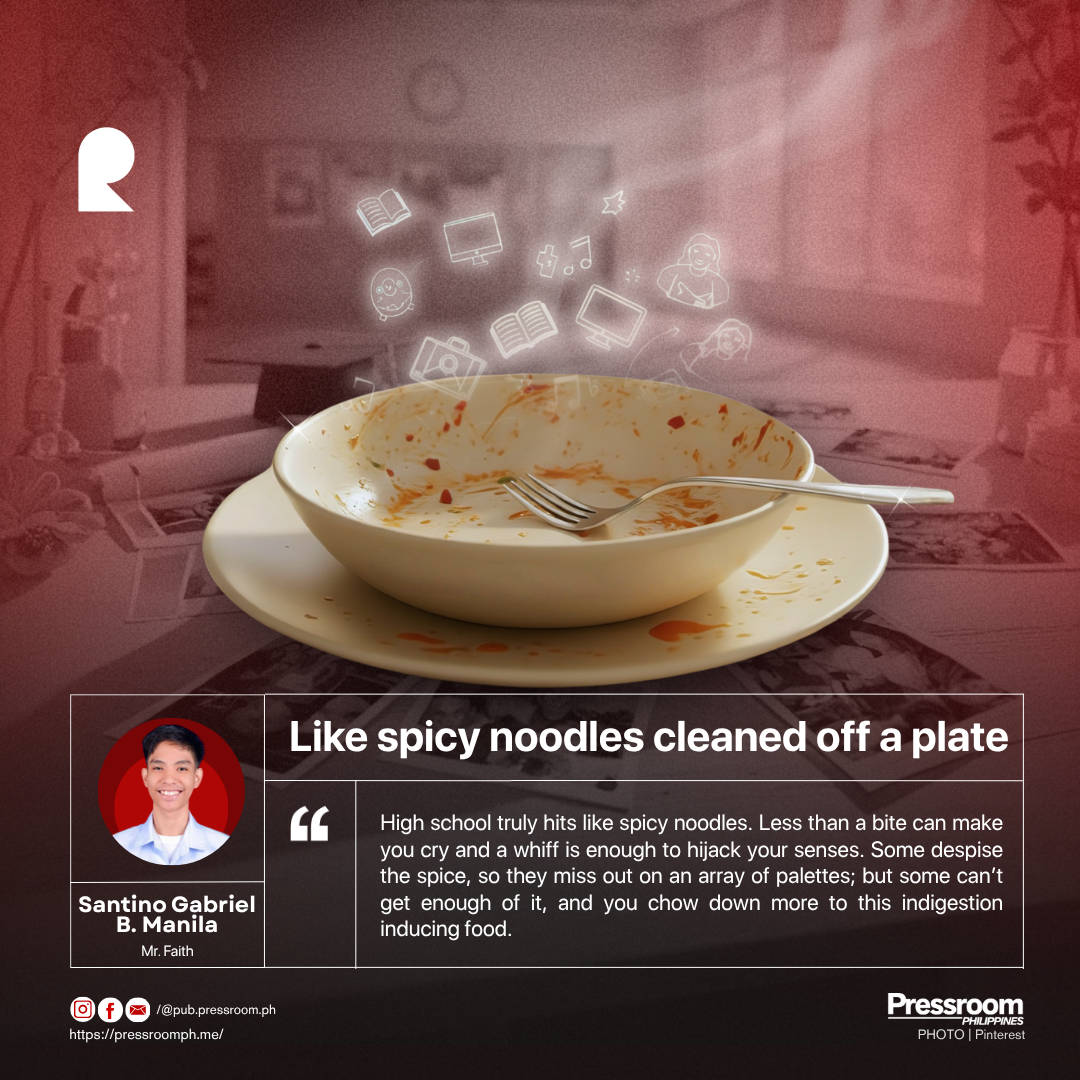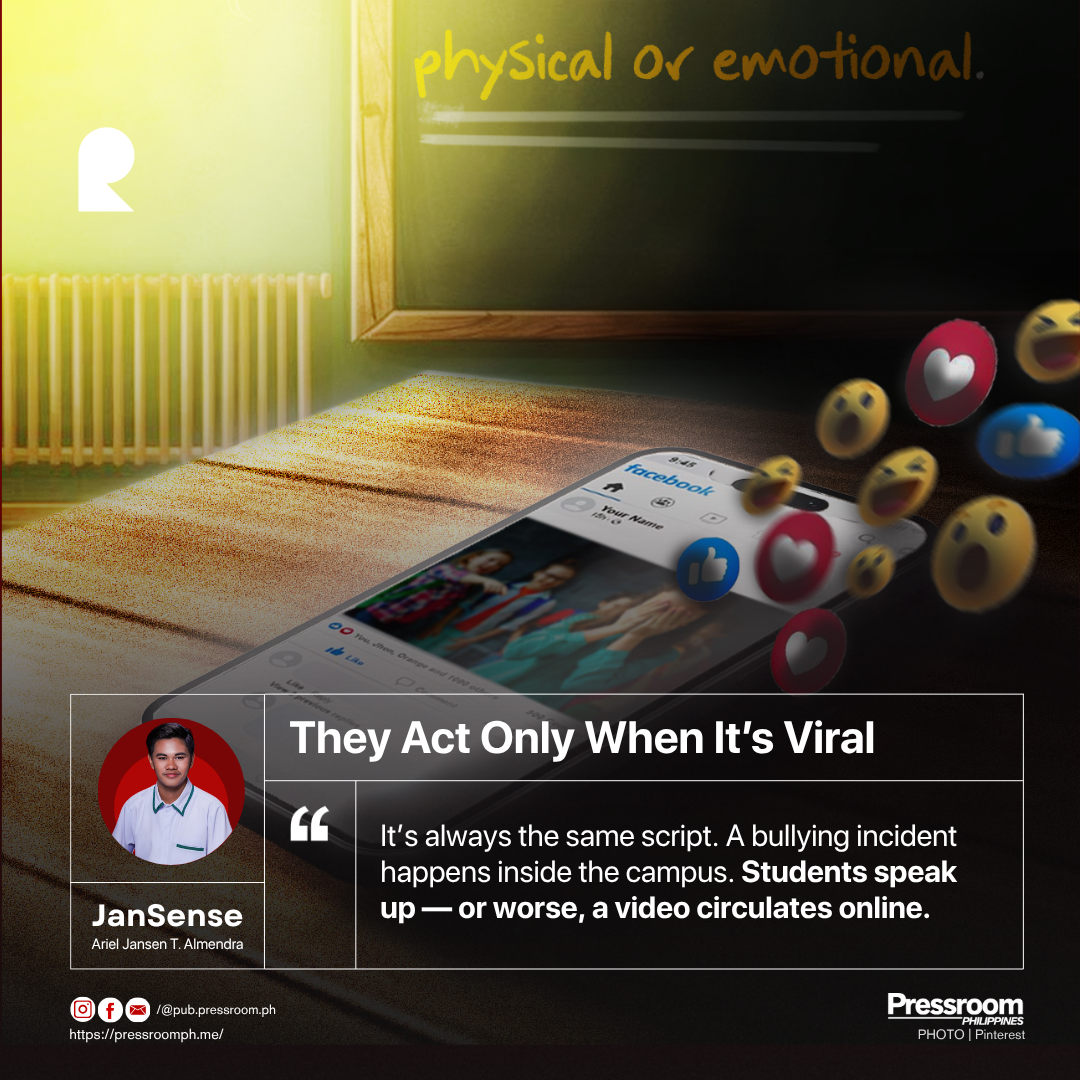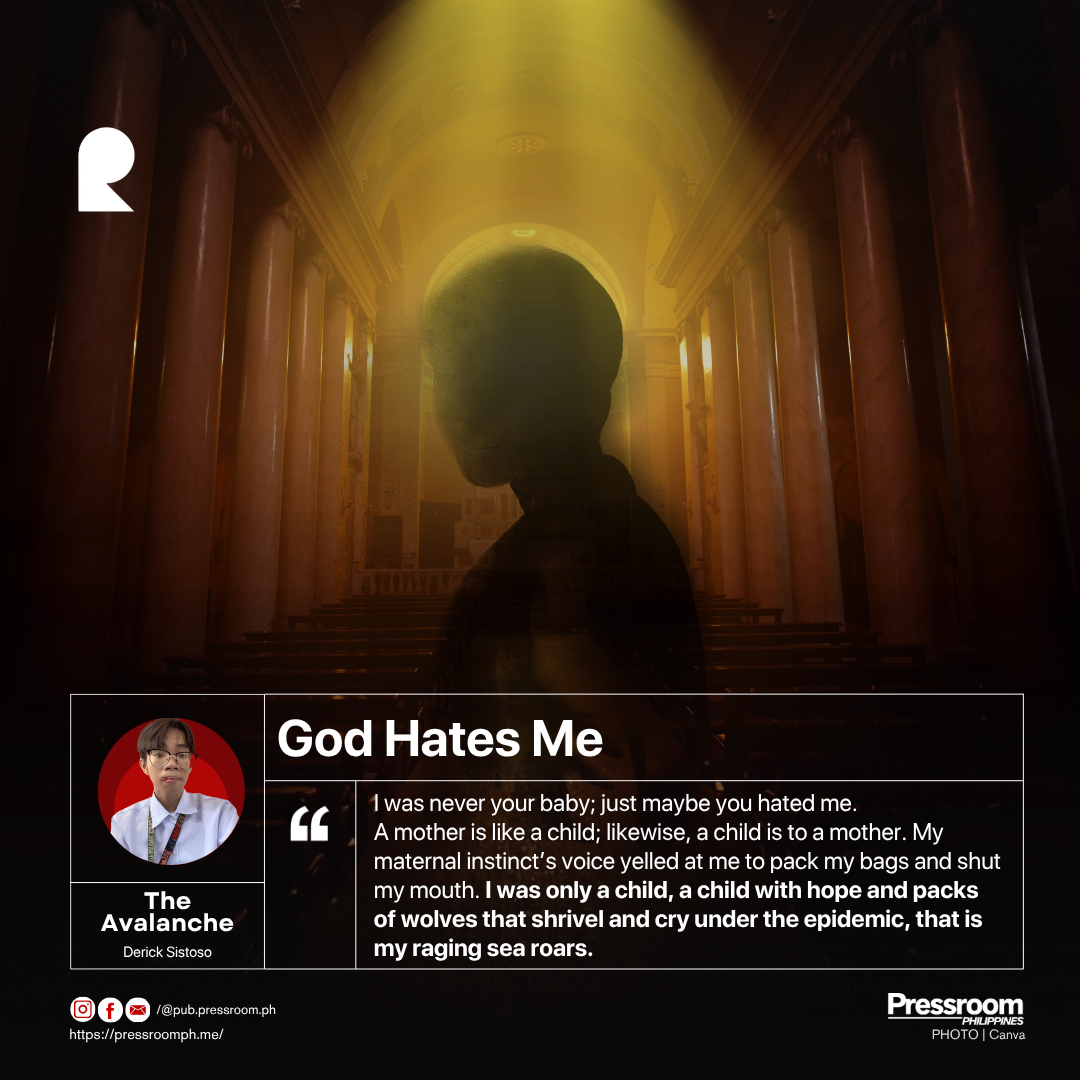via Vince D. Gañgan, Pressroom PH
“Friends with benefits,” “BFF premium,” “No label,” “Mixed signals,” and “Situationships.” You’ve probably heard these modern terms before. Buzzwords that echo like thunder through most modern Filipino teenage relationships—loud, confusing, and at times, dangerous. We toss these labels around like punchlines, masking confusion and emotional risk behind jokes and emojis. But beneath all the irony and sarcastic comments lies a serious question: Is the true essence of romance still alive in this generation?
Imagine a relationship being built without a solid foundation: held together by vague rules, fleeting emotions, and infatuation mistaken for love, while simultaneously lacking healthy boundaries, honest communication, and lasting commitment. What you'll envision is the sad truth behind almost every modern Filipino teenage ‘situationships’.
Modern relationships have gotten a rebrand. The days of romantic courtship, the practice of harana, handwritten love letters, and long conversations under the night sky are slowly becoming a thing of the past. Now we have late-night texts that say “U up?” instead of “I miss you.” We “soft launch” people on our social media accounts via stories instead of introducing them as our significant other.
The terms we now use such as situationship, friends with benefits, and talking stage all reflect a culture that signals fear when faced with commitment. We crave intimacy yet fear showing vulnerability. We want attention, not long-term attachment. The new generation fears the responsibilities and rules that committing to a relationship brings.
One trend that can be clearly seen within modern relationships of Pinoy teenagers is the “Friends with benefits” propaganda. It is disheartening to see most Filipino teenagers settling for a no-label relationship. Clearly showing a mentality that has been rewired by modern media to appreciate less than the bare minimum without even batting an eye.
Let me be harsh: being sweet in the digital world while acting cold and distant towards your partner in the real world isn't love—it's just you trying to feed your ego and convincing yourself that you are important. Saying “Good morning” to your significant other over text is not romantic, nor is bombarding them with “I miss you” messages when you can't even look them straight in the eye in public.
Closely related is the rise of what others call the “BFF premium” culture. A glorified version of “just friends” where people act like lovers but refuse to acknowledge the reality of what they truly are. This blurred line between best friend and romantic partner is not cute. It’s confusing, manipulative, and oftentimes leads to deep emotional entanglements that neither side is mature enough to handle.
Then comes the most frustrating epidemic of all: mixed signals. The “I like you, but not too much” game. The sweet messages followed by sudden coldness. The flirty comments followed by “Don’t catch feelings ha.” Filipino teens have mastered the art of being emotionally unavailable while still expecting loyalty and obedience.
Mixed signals aren't mysterious, they're manipulative, draining, and annoying. It’s a toxic balancing act where the goal isn't connection, but control over one another. They create an emotional rollercoaster that leaves each other guessing, doubting, and ultimately, hurting.
All of these elements culminate into what we now call “situationships.” The vague, undefined, emotionally confusing middle ground where nothing is official, yet everything feels real. It is a breeding ground for insecurity and emotional exhaustion. You’re not single, but you're not taken. You’re invested, but not valued. You are just there playing a painful game of waiting for labels, for effort, and for certainty that rarely comes.
Teenagers today deserve to experience love that is respectful, intentional, and grounded in truth, not just versions of it filtered through trends and TikTok audios. Until we start demanding more than “bare minimum love,” we will remain stuck in these half-baked connections that leave us more empty than fulfilled.
In conclusion, the true essence of romance in modern Filipino relationships is slowly dying. Rather than seeking honest admiration and genuine romance, this generation is way too busy chasing validation, temporary excitement, or the illusion of intimacy. And while it may seem liberating on the surface, it often leaves one party feeling used and emotionally drained. Love, after all, is not just about pleasure, it's about resilience, respect, and responsibility.






